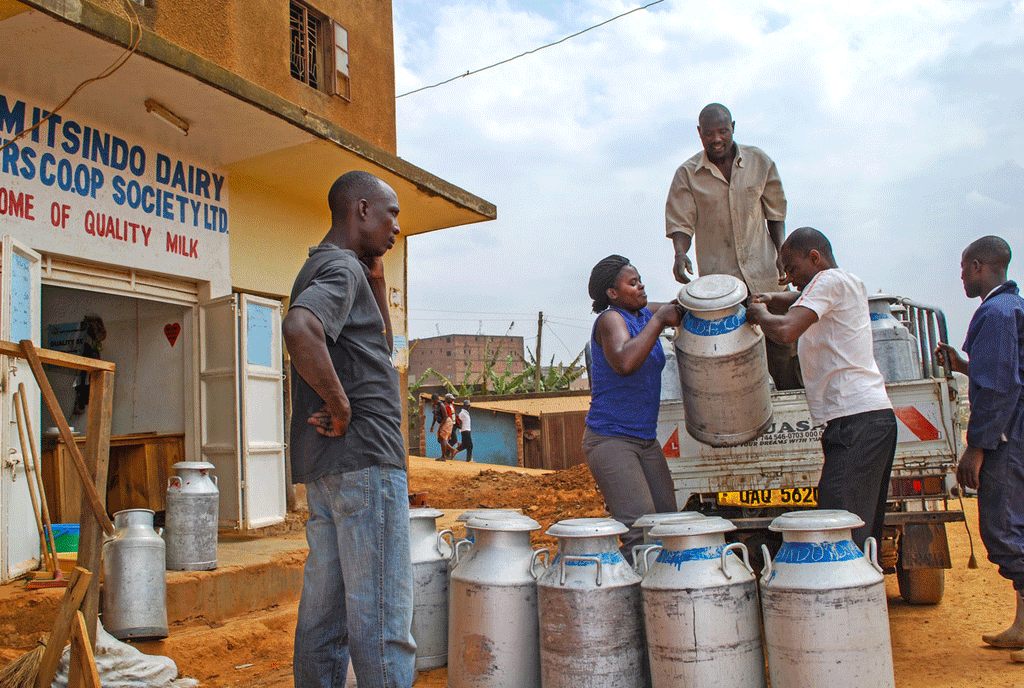Govt is securing bigger markets beyond Kenya – Minister

Mr Frederick Ngobi Gume, the State Minister for Co-operatives. Photo | File
What you need to know:
- Mr Ngobi, whose statements come at a time when Ugandan milk producers are grappling to get export permits for powdered milk in Kenya, said this is not a big problem as claimed by the media.
Government is looking at the opportunities brought by the Africa Continental Free Trade Area (AfCTA), as the long-lasting solutions to Kenya’s unreliable non-tariff barriers (NTBs).
As they continue to dialogue with Kenya, who has since reduced issuing permits for Uganda’s powdered milk by 20 per cent, Mr Frederick Gume Ngobi, the State Minister for Co-operatives at the Ministry of Trade, Industries and Cooperatives, told the Monitor that expansion of Uganda’s market will end all the chaos caused by NTBs.
“We are now securing other bigger markets where we can sell our products not only milk, but also other products. We have already secured markets from Nigeria and South Africa for many of these other products,” he said at the sidelines of the Private Sector Dialogue on Harnessing Opportunities brought by AfCTA in Kampala on Monday.
Mr Ngobi, whose statements come at a time when Ugandan milk producers are grappling to get export permits for powdered milk in Kenya, said this is not a big problem as claimed by the media.
“That one should not bother us much because we always have dialogues under the East African Community (EAC). There are laws that govern us in the community and that will be addressed. It cannot be a problem. We have not had any disagreement and I don't think we have failed to access market in East Africa because we have protocols that guide us,” he said.
Mr Stephen Asiimwe, the chief executive officer of the Private Sector Foundation Uganda (PSFU), said no meaningful trade will be realised in Africa unless countries fight NTBs.
“As PSFU, we condemn these NTBs such as roadblocks, exorbitant taxes at borders and very difficult conditions. We call upon our foreign affairs to fight these interruptions because it fosters and fights the things that bring together the EAC,” he said.
Kenya is Uganda’s biggest African trade partner, importing 11.2 per cent of Uganda’s total exports followed by South Sudan at 8.61 per cent, the Democratic Republic of Congo (DRC) at 6.43 percent, Tanzania at 2.29 per cent, and Sudan 2.16 per cent.
Uganda's exports are highly regionalised with Africa totaling to 52 per cent of which 41 per cent are consumed by EAC.
Ms Elsie Attafuah, the United Nations Development Programme (UNDP) resident representative, said AfCFTA has the potential to reshape markets and economies across the continent.
“AfCFTA is, therefore, more than a pledge to eliminate tariffs, cut red tape, or simplify customs checks. It is a unique opportunity to create an integrated, continentwide market and a vital step towards building the Africa we want,” she said.
Ms Olive Kigongo, the president of the Uganda Chambers of Commerce and Industries (UCCI), said the AfCFTA presents a promising offer of continentwide commercial market access for Ugandan firms to significantly expand their exports to new markets.
Mr Mene Wamkele, the secretary general of AfCTA, called upon countries to boost intra-Africa trade so that they make goods from outside Africa expensive and redundant.




